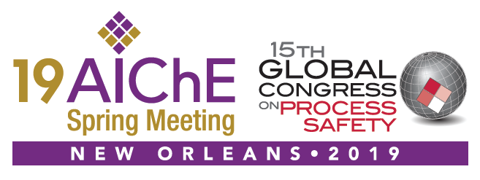

In process safety our goal is to keep process energy contained; to keep the tiger in the cage. To do so effectively, a team effort is required, including: operations, maintenance, engineering, management, contractors, and other relevant organizations. We, as process safety leaders and program owners, are selling a product, driving a transaction that includes ideas, investments, and resource allocation.
We could, as many do, use the regulatory requirements to facilitate the transaction. This ‘push’ method of sales is less effective than a ‘pull’ approach where we represent the value of our product to the buyers: our management teams, operations, maintenance, engineering, communities, and shareholders. The currency of this more effective exchange is trust.
In economics, the Theory of Constraints has the underlying premise that the constraints of an organization are either throughput, operational expense, or inventory. In process safety, these three constraints can be summarized as: risk reduction, action items associated with process safety programs, and resources used to develop and drive these actions. Minimizing these constraints requires trust within the organization, unleashing the ability of the team to innovate and act in a way that maximizes throughput (risk reduction).
By developing company or site programs that are too restrictive, limiting good engineering judgement in favor of always or never requirements, trust is often eroded. For example, a requirement that the PHA not allow safeguard of an operator response to an alarm can be perceived by operator(s) as a sign of distrust in the operator’s ability to perform his assigned duties. Prohibiting any and all check valves from use as safeguards can be perceived by maintenance as a sign of distrust in their ability to maintain equipment. The opposite of each of these examples, such as always allowing an operator response to alarm to be used a safeguard, would be reckless, likely indicating a general distrust in process safety as a value added program.
Providing good practice guidelines and identifying relevant RAGAGEP, then unleashing the innovative and creative potential of our teams will, in most cases, yield a higher throughput process safety program than if we constrain the program with restrictive requirements.
This paper will explore the approach of process safety as a product, where trust is the currency of the exchange, thus leading to greater throughput, as measured by risk reduction. When trust is present, team members feel more empowered, and hold themselves more accountable. They are better able to demonstrate that the tiger is in the cage.
Presenter(s)
Language
Pricing
Individuals
| AIChE Member Credits | 0.5 |
| AIChE Pro Members | $19.00 |
| Employees of CCPS Member Companies | Free |
| AIChE Graduate Student Members | Free |
| AIChE Undergraduate Student Members | Free |
| AIChE Explorer Members | $29.00 |
| Non-Members | $29.00 |
